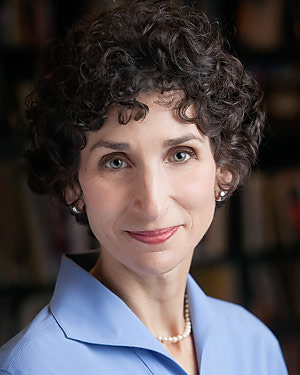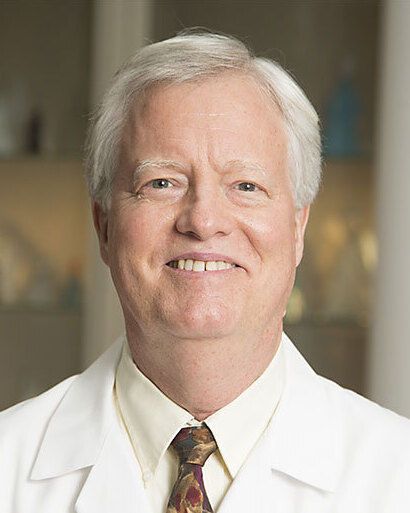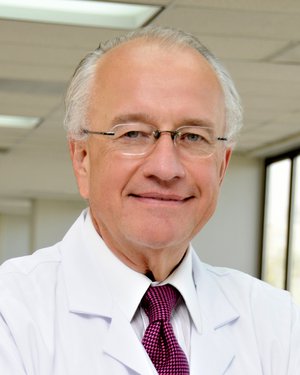Research Lab Results
-
John Ulatowski Lab
Research in the John Ulatowski Lab explores the regulatory mechanisms of oxygen delivery to the brain and cerebral blood flow. Our work includes developing and applying new techniques and therapies for stroke as well as non-invasive techniques for monitoring brain function, fluid management and sedation in brain injury patients. We also examine the use of novel oxygen carriers in blood. We’ve recently begun exploring new methods for perioperative and periprocedural care that would help to optimize patient safety in the future. -
Jodi Segal Lab
Research in the Jodi Segal Lab focuses on developing methodologies to use observational data to understand the use of new drugs, particularly drugs for treating diabetes, blood disorders and osteoporosis. We apply advanced methods for evidence-based review and meta-analysis, and—in collaboration with Johns Hopkins biostatisticians—we have developed new methodologies for observational research (using propensity scores to adjust for covariates that change over time) and methods to account for competing risks and heterogeneity of treatment effects in analyses.
-
Linda Smith-Resar Lab
The Linda Smith-Resar Lab primarily investigates hematologic malignancy and molecular mechanisms that lead to cancer as well as sickle cell anemia. Recent studies suggest that education is an important and effective component of a patient blood management program and that computerized provider order entry algorithms may serve to maintain compliance with evidence-based transfusion guidelines. Another recent study indicated that colonic epithelial cells undergo metabolic reprogramming during their evolution to colorectal cancer, and the distinct metabolites could serve as diagnostic tools or potential targets in therapy or primary prevention. -
Rita Kalyani Lab
Research in the Rita Kalyani Lab examines the decreased physical functioning observed in patients with diabetes as they age. Through several ongoing epidemiological cohorts, we are investigating the association of high blood glucose and high insulin levels with accelerated muscle loss, and possible contributions to the physical disability observed in diabetes. We are currently involved in clinical studies that aim to understand the underlying mechanisms for these associations and to facilitate the development of novel strategies to prevent muscle loss and disability in people with diabetes.
-
Richard John Jones Lab
The Richard J. Jones Lab studies normal and cancerous stem cells in order to make clinical improvements in areas such as blood and marrow transplantation (BMT). We discovered one of the most common stem-cell markers, Aldefluor, which identifies cells based on their expression of aldehyde dehydrogenase 1 (ALDH1), and have used this marker to detect and characterize normal stem cells and cancer stem cells from many hematologic malignancies. We also developed post-transplant cyclophosphamide and effective related haploidentical BMT.
-
Steven Frank Lab
Research in the Steven Frank Lab focuses on processes to improve blood use and to avoid blood transfusions for patients who do not want to receive blood or blood products. Processes include autologous hemodilution and cell salvage, and treating or averting anemia pre- and post-surgery. Other lab studies have focused on blood conservation, bloodless medicine surgery, the regulation of body temperature during surgery and methods of preventing hypothermia during surgery.
-
Sharon Turban Lab
Research in the Sharon Turban Lab focuses on the effects of sodium and potassium on blood pressure and on kidney function. We lead the Chronic Kidney Disease-Potassium (CKD-K) clinical trial, funded by American Heart Association, which examines the benefits and safety of two levels of potassium intake in patients with kidney disease. Other research includes the Chronic Renal Insufficiency Cohort (CRIC) study, which aims to improve the understanding of chronic kidney disease and related cardiovascular illness.
-
Alison Moliterno Lab
The Alison Moliterno Lab studies the molecular pathogenesis of myeloproliferative disorders (MPDs), including polycythemia vera, essential thrombocytosis and idiopathic myelofibrosis. Our research is focused on the genetic and epigenetic lesions associated with MPDs, with the goal of improving diagnosis and treatment for these disorders. -
HPTN (HIV Prevention Trials Network) Network Lab
HPTN (HIV Prevention Trials Network) Network Laboratory (NL) is responsible for collecting, testing and reporting results from biological samples; assisting in the development and quality assurance assessment of local laboratory capacity at the Clinical Trials Units (CTUs) participating in HPTN clinical trials (www.hptn.org); and identifying and implementing state-of-the-art assays and technologies to advance the scientific agenda of the Network. -
Paul Rothman Lab
Research in the Paul Rothman Lab has focused on cytokines. We’ve investigated the role these molecules play in the normal development of blood cells as well as the abnormal blood-cell development that leads to leukemia. We’ve also studied the function of cytokines in immune system responses to asthma and allergies.



